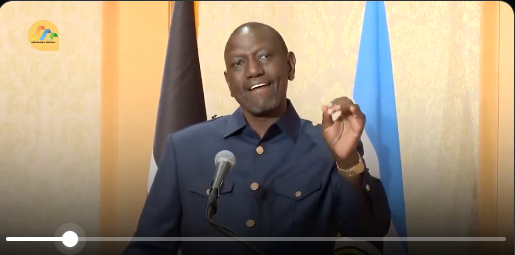President William Ruto has taken a firm stance in defending his tax policies, despite the satirical nicknames he has gained.
Recently, he acknowledged being called names like “Zakayo”—a nickname that refers to Zacchaeus, a Biblical tax collector, often used to criticize Ruto’s emphasis on increased taxation.
Ruto addressed this during international meetings, emphasizing that Kenya’s long-term economic stability requires self-reliance through taxes rather than relying on foreign aid.
His commitment is clear; he argues that by building the country’s economy this way, Kenya can gain control over its financial future without the burden of external debt
During his speech, Ruto expressed his dedication to fulfilling his promises and his openness to being called whatever names the public chooses, including “Zakayo” or “Makanga” (another nickname referencing his style of leadership).
He assured Kenyans that his administration’s tax policies, though unpopular, are crucial for the nation’s growth.
By drawing parallels between Kenya and more tax-reliant economies like Japan, he underlined the necessity of taxation as a foundation for achieving sustainable development.
In his view, these policies align with his vision of creating a resilient Kenyan economy. While Ruto’s tax policies have invited criticism and spawned other nicknames, such as “Mr. Next Week” for delays in promised reforms, he remains resolute, suggesting that long-term benefits will follow.
His focus on fiscal responsibility and cutting reliance on debt underscores his administration’s commitment to economic independence, even as the public response remains mixed.


